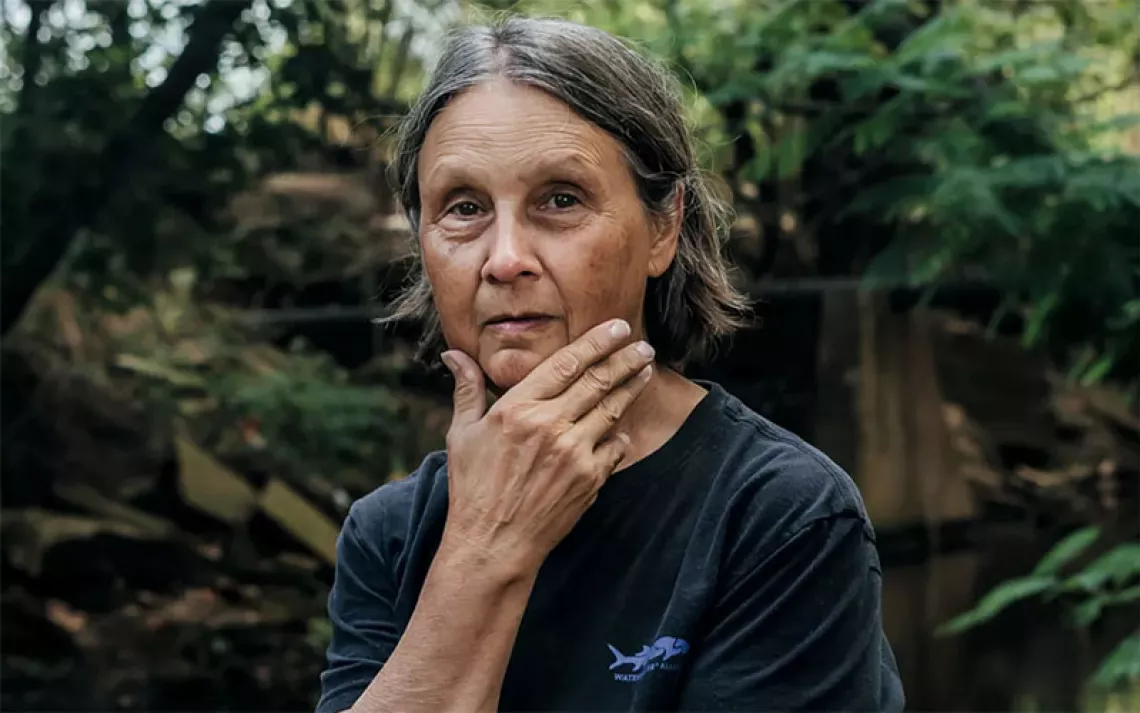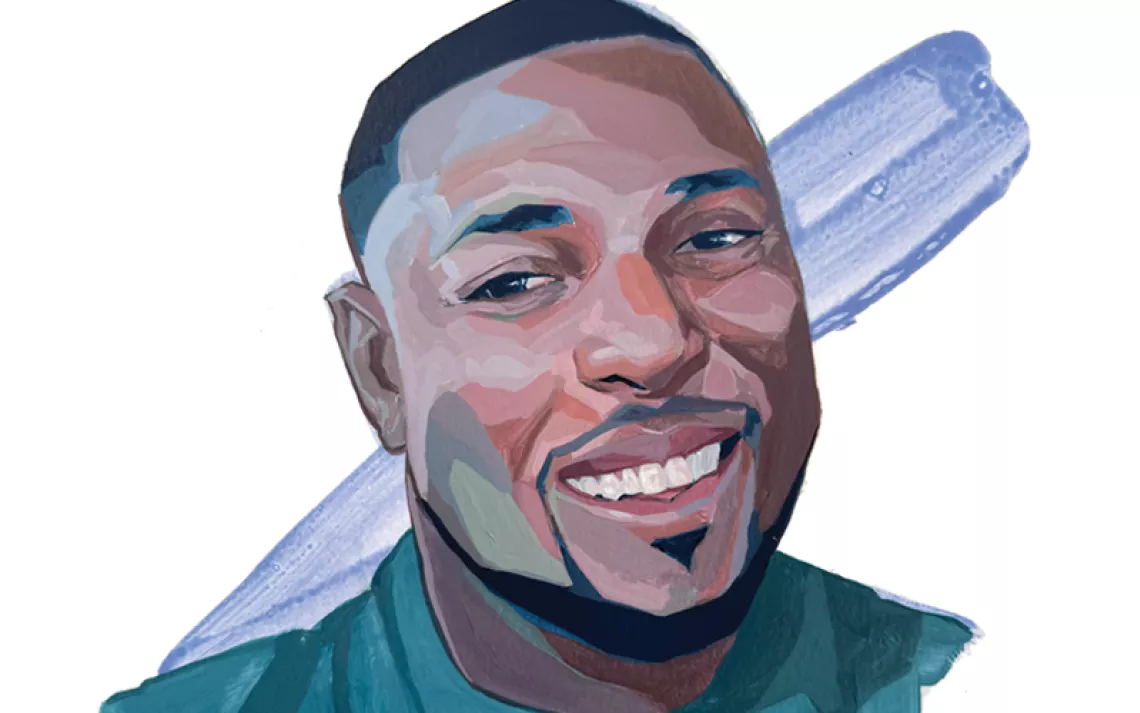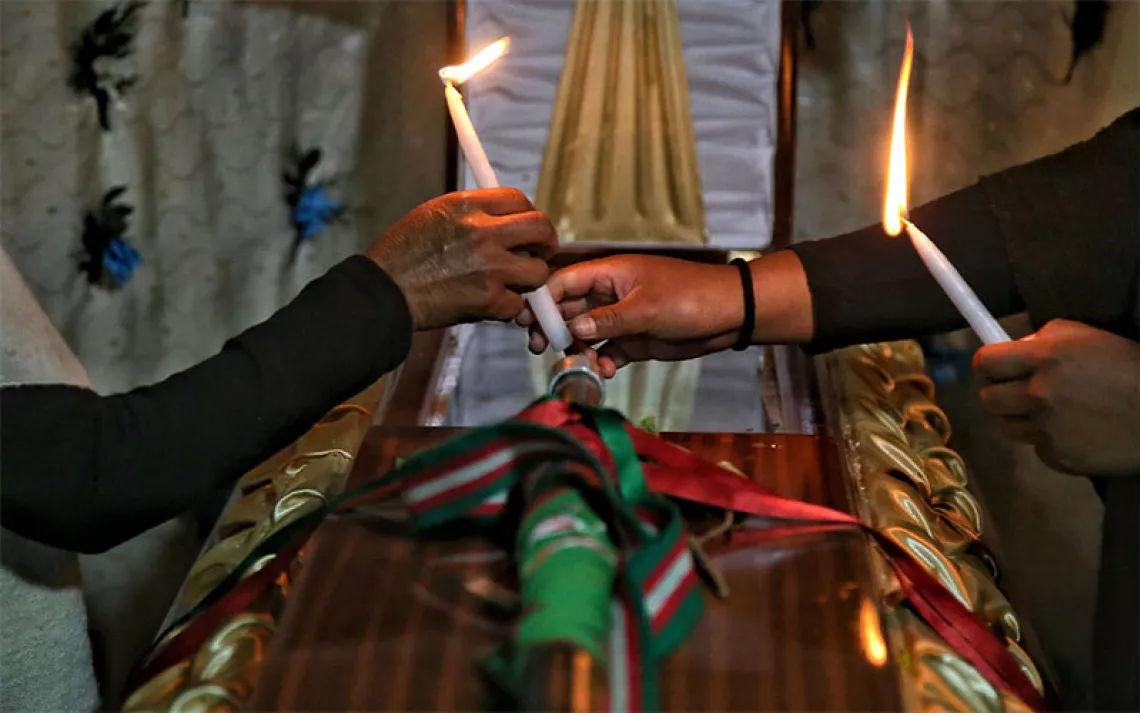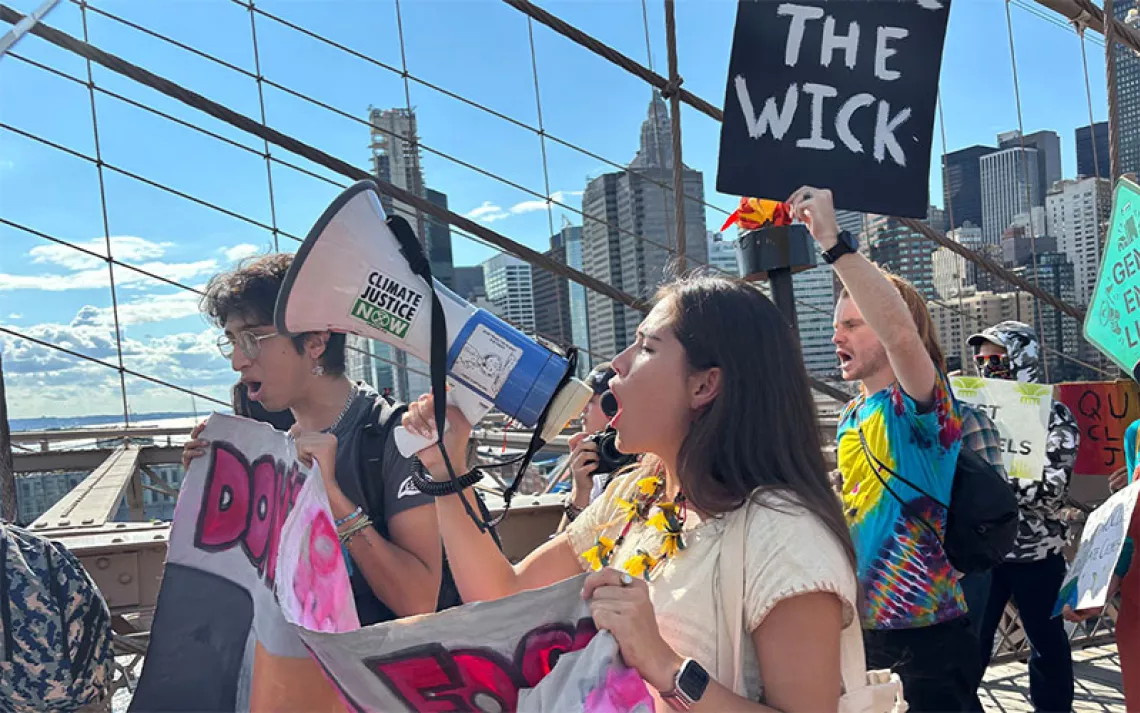Leah Clyburn Believes in the Rainbow Connection
The Beyond Coal organizer wants us to get to know each other
 My parents and I moved to St. Louis from New York in 1987. We were one of only two Black families in our neighborhood. Growing up in Missouri, I learned that nature is something you have to be invited into. One time I went camping with my friend and her family at this place that had a swimming pool. As soon as I stepped into the water, everybody started getting out. My friend's dad showed up and told everyone that if they had a problem with me getting in the pool, they had better come talk to him. That moment solidified the feeling for me that I'm not safe out in nature unless I'm with a group of white people.
My parents and I moved to St. Louis from New York in 1987. We were one of only two Black families in our neighborhood. Growing up in Missouri, I learned that nature is something you have to be invited into. One time I went camping with my friend and her family at this place that had a swimming pool. As soon as I stepped into the water, everybody started getting out. My friend's dad showed up and told everyone that if they had a problem with me getting in the pool, they had better come talk to him. That moment solidified the feeling for me that I'm not safe out in nature unless I'm with a group of white people.
Illustration by Jon Stich My mom is Jamaican, and my stepdad is German. Every summer, I would go back to New York, where my grandmother lived, and then every other August I'd go to Jamaica. The Caribbean is where I fell in love with nature. Every night, you have a bonfire. That's when family comes together. You're under the dome of stars, and you hear the water.
When my stepdad came into my life, I started going to Germany too. My family is a beautiful rainbow. That's how I know that people can be from totally different backgrounds and still care about one another and get things done. When I think of organizing, I see it as an opportunity to connect with people's humanity, because if we do that, we'll always look out for one another.
I first heard of the Sierra Club around 2014, when I was working on reproductive justice. I thought it was just about white people going out to the woods. In Missouri, the Sierra Club, Planned Parenthood, Jobs With Justice, the ACLU, the Organization for Black Struggle, and the Missouri Rural Crisis Center have worked together for years, but it wasn't until 2018, when I was a field organizer for the Clean Missouri campaign, that I started working closely with the Missouri Chapter and learning more about the Sierra Club.
Once that ended, I was hired as an organizer for the Beyond Coal campaign. The history of coal in Missouri was new to me. At first, I didn't get it. Climate change seems like something beyond our control. But then I looked at what's happening in the communities of people who live near the coal plants—predominantly Black and brown folks with high levels of cancer and asthma. It takes these stories, these lived stories, to move people.
My days are a bit of a hodgepodge. I'm a co-steward of our union and one of the leads in the Sierra Club's women of color group. I'm also one of the organizers who helped start a mutual aid program in St. Louis when COVID-19 hit and am part of an effort to help vulnerable communities deal with evictions and utility shutoffs.
I started this job in October 2018. I've seen a lot of change within the organization since then. It's allowed me to trust what I believe is true about people. We all have our biases, which have helped ensure our survival. But what happens when harm comes from them? Can we have a candid conversation about it and then support one another enough to move forward?
I want people to stop labeling the Sierra Club as a place that is just for people to go out and explore the wilderness. Yes, go, connect to it, but also connect to the people you run into out there. Explore with them. Explore who they are.
This article appeared in the Summer quarterly edition with the headline "Rainbow Connection."
This article was funded by the Sierra Club's Beyond Coal campaign.
 The Magazine of The Sierra Club
The Magazine of The Sierra Club



